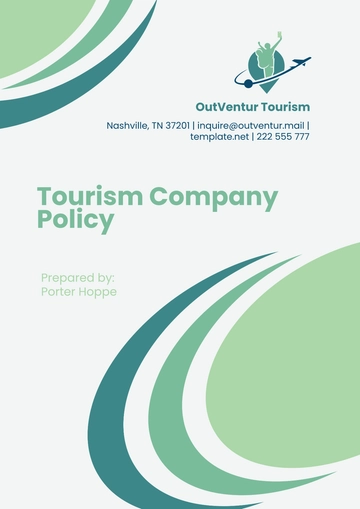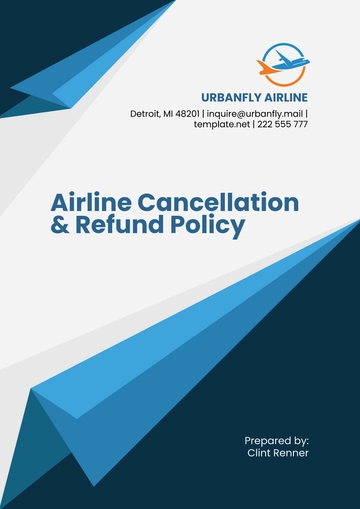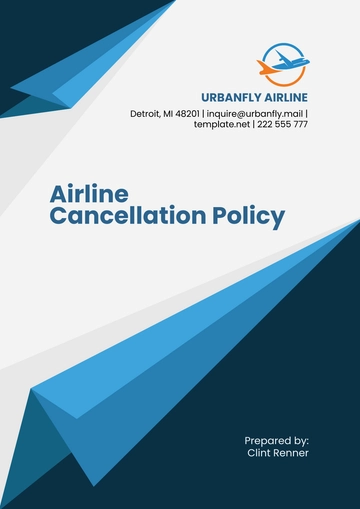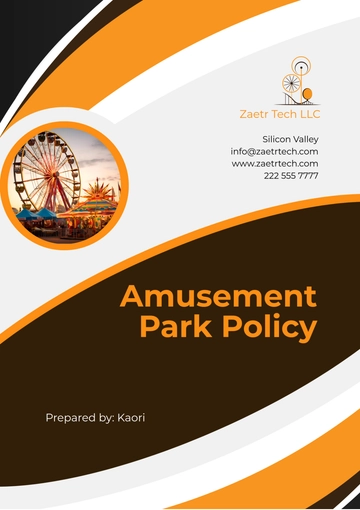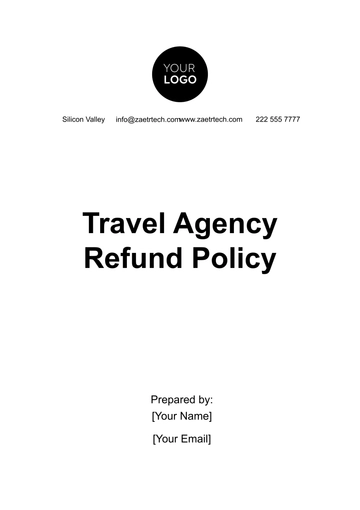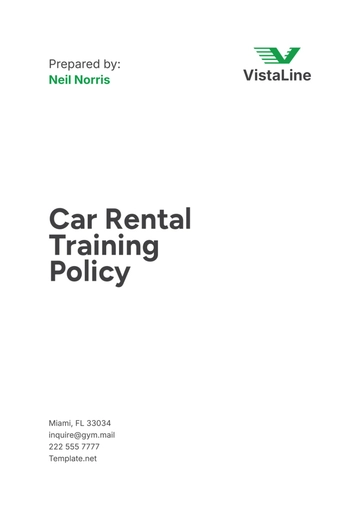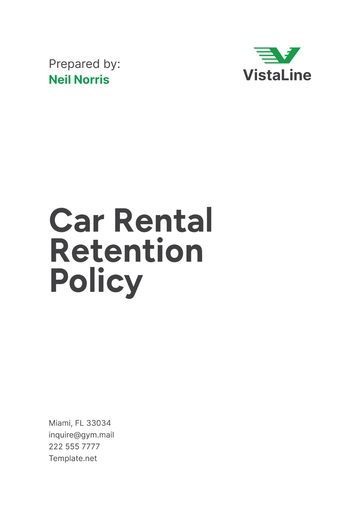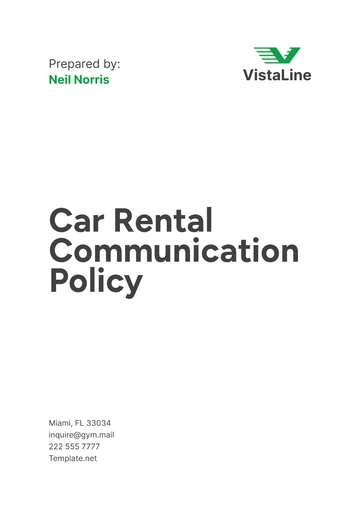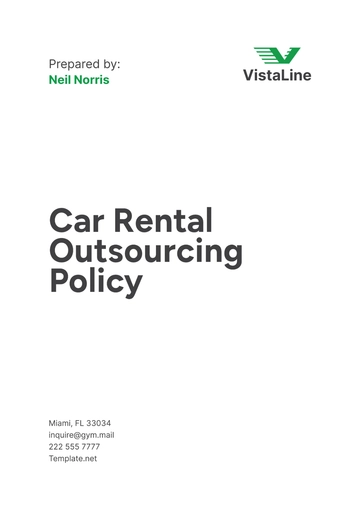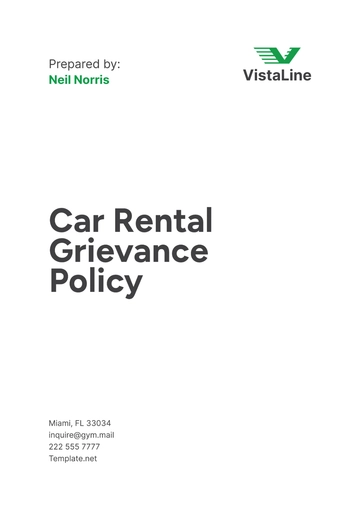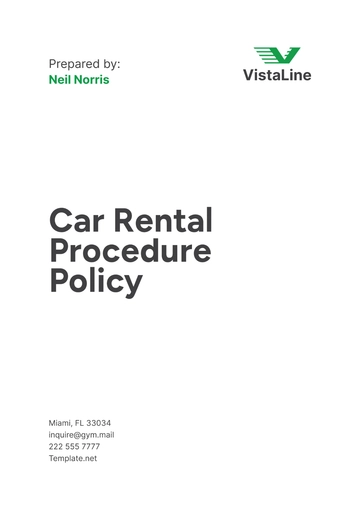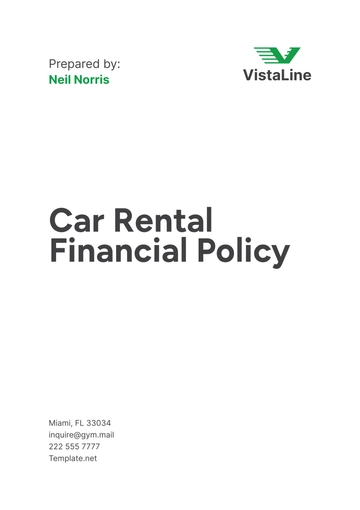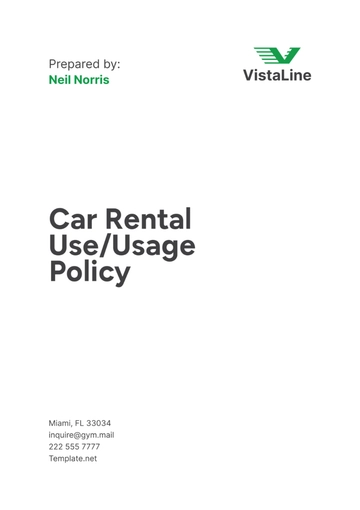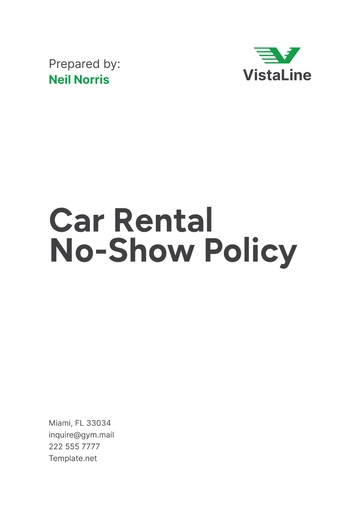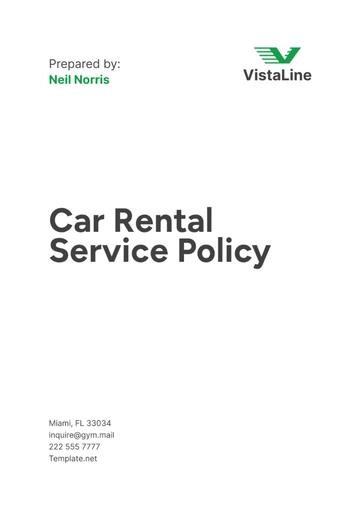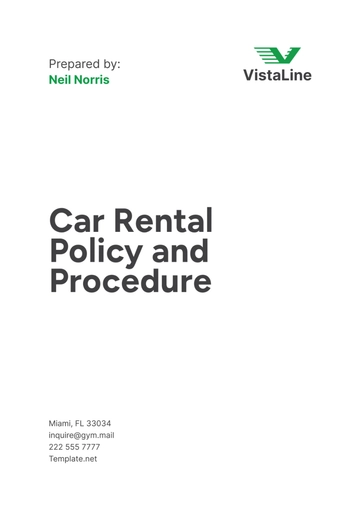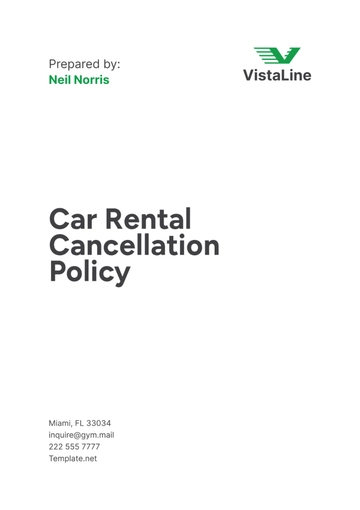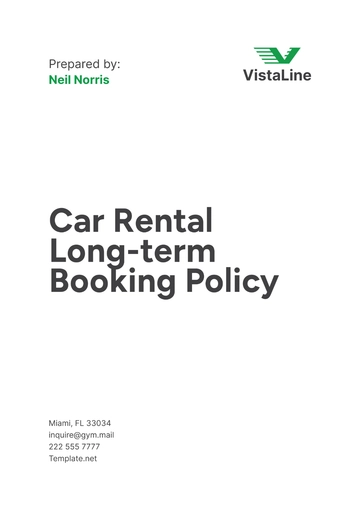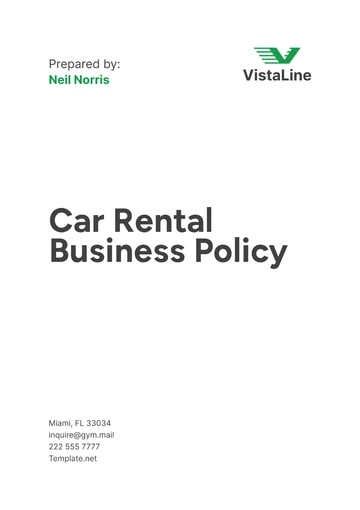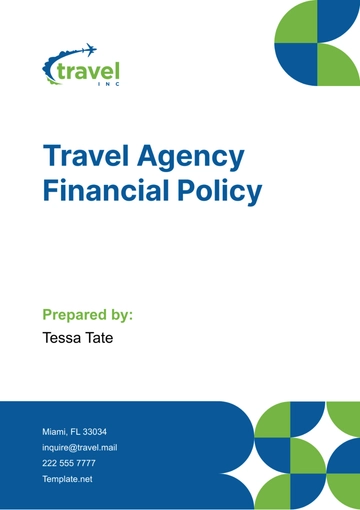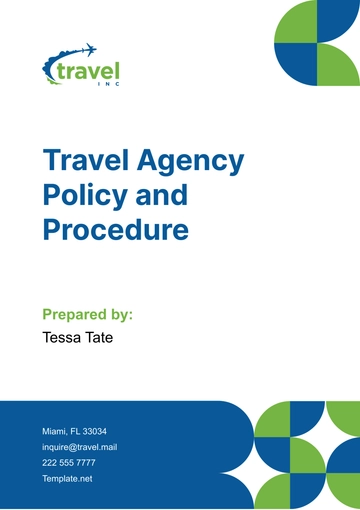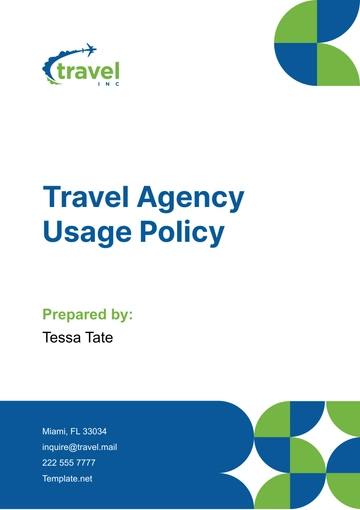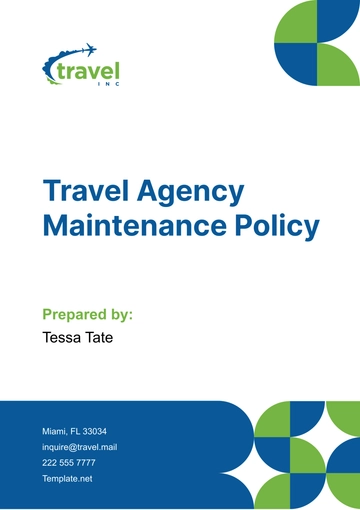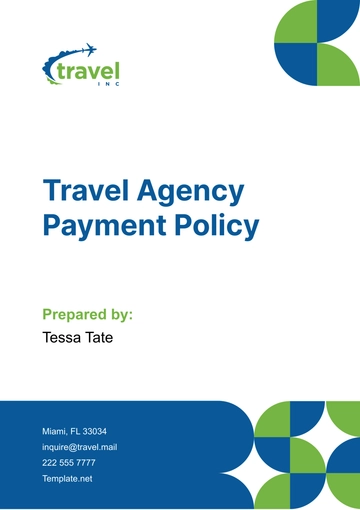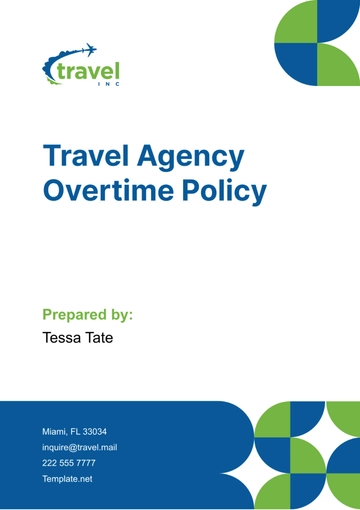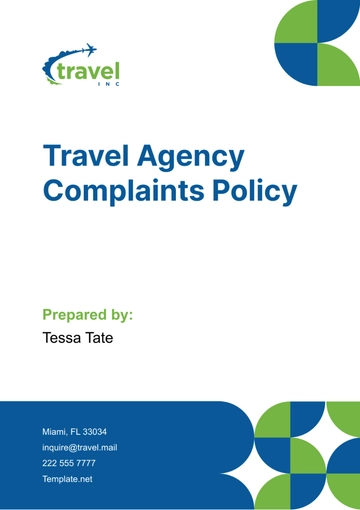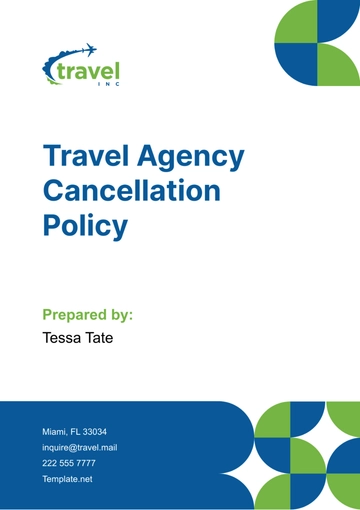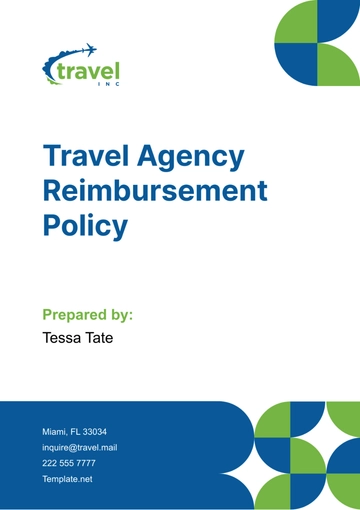Free Car Rental Training Policy
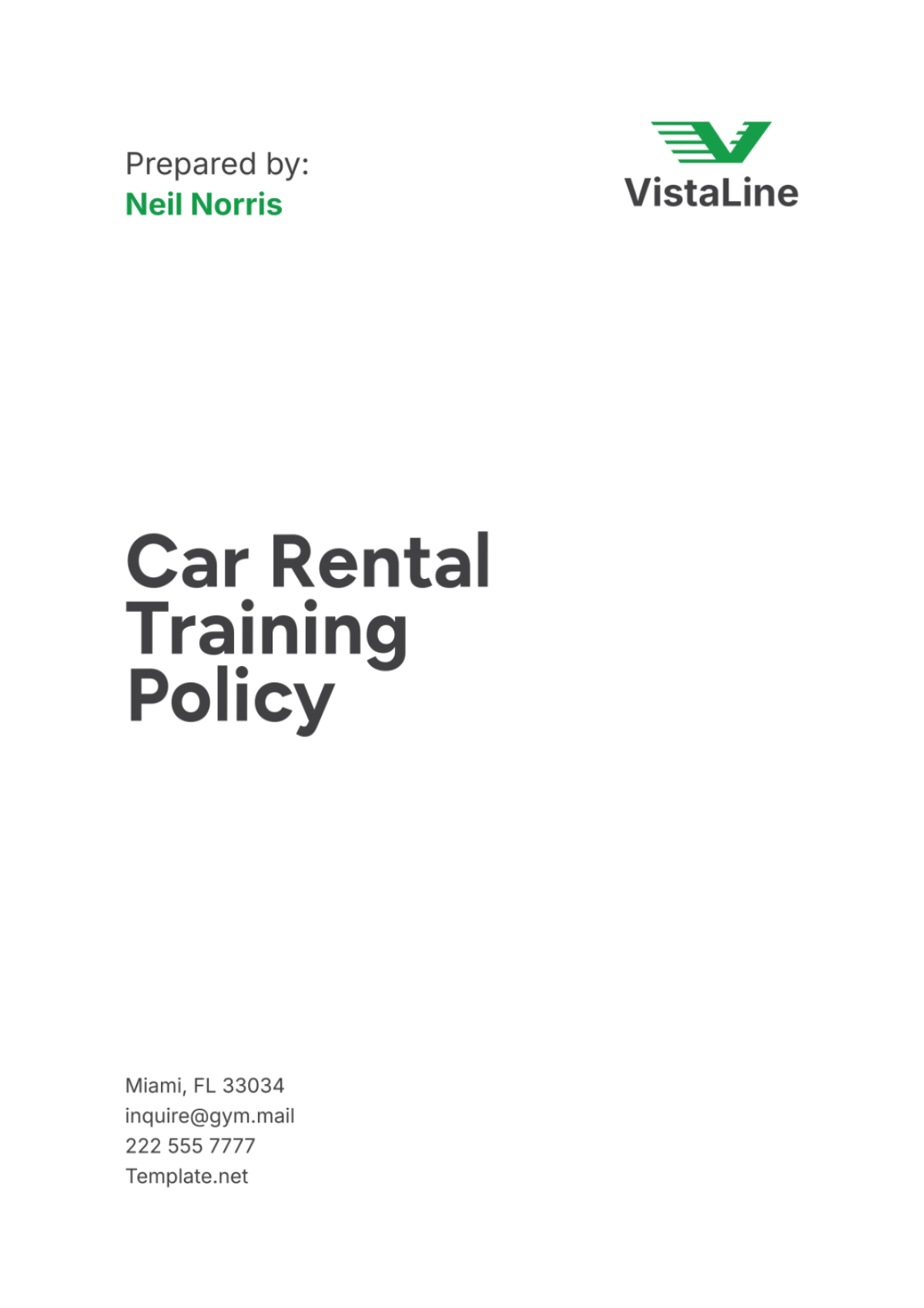
1. Objective
The Car Rental Training Policy is designed to ensure that all employees of [Your Company Name] receive comprehensive and consistent training regarding the company's car rental procedures and customer service standards. This policy aims to enhance operational efficiency, minimize errors, and uphold safety regulations through standardized training practices. By implementing structured training, the policy ensures that employees are well-informed about rental processes, legal requirements, and customer interaction protocols.
It also fosters a uniform service experience for customers, reflecting [Your Company Name]'s commitment to quality and professionalism. Ultimately, the policy supports the company's goal of providing reliable and exceptional service while safeguarding its operational integrity.
2. Scope
This policy applies to all employees of [Your Company Name], including full-time, part-time, and temporary staff who are involved in any aspect of the car rental process.
3. Training Components
3.1. Rental Procedures
Employees will be trained on the following rental procedures:
Vehicle reservation and booking processes: Employees will receive comprehensive training on how to manage vehicle reservations and bookings. This includes understanding the reservation system, processing customer requests, and ensuring that bookings are accurately recorded and confirmed. Training will cover the steps for checking vehicle availability, creating booking entries, and communicating with customers to confirm their rental details. The goal is to ensure that employees can efficiently handle reservations and provide a seamless booking experience for customers.
Vehicle inspection and preparation: Training will include detailed procedures for inspecting and preparing vehicles before they are rented out. Employees will learn how to perform thorough inspections to check for any pre-existing damage, mechanical issues, or cleanliness concerns. This process ensures that each vehicle meets the company’s safety and quality standards before it is handed over to customers. Additionally, employees will be trained on how to prepare vehicles for rental, including tasks such as cleaning, refueling, and verifying that all required documentation is in the vehicle.
Rental agreement documentation: Employees will be trained on how to accurately complete and process rental agreements. This includes understanding the key terms and conditions that must be included, such as rental duration, pricing, mileage limits, and insurance coverage. Training will focus on ensuring that all necessary fields are filled out correctly and that both the customer and the company’s interests are protected through clear and comprehensive documentation.
Return and check-in procedures: Training will cover the procedures for checking in vehicles upon their return. Employees will learn how to perform post-rental inspections to assess the condition of the vehicle, handle any damage reports, and process returns efficiently. This includes verifying that all rental equipment and documentation are returned and reconciling any discrepancies or issues that arise during the check-in process.
Handling late returns and extensions: Employees will be instructed on how to manage situations involving late returns and rental extensions. Training will cover the procedures for handling late fees, processing requests for rental extensions, and communicating with customers regarding any additional charges or changes to their rental agreement. The objective is to ensure that employees can handle these situations professionally and in accordance with company policies.
3.2. Customer Service Standards
Training will cover key customer service standards, including:
Effective communication skills: Training will emphasize the importance of effective communication in providing exceptional customer service. Employees will learn techniques for active listening, clear verbal communication, and professional interaction with customers. The training will focus on how to convey information clearly, understand customer needs, and respond appropriately to various customer scenarios.
Handling customer inquiries and complaints: Employees will be trained on how to handle customer inquiries and complaints efficiently and professionally. This includes techniques for addressing common customer questions, resolving issues, and managing complaints in a way that upholds the company’s reputation and fosters customer satisfaction. Training will include role-playing exercises and scenarios to practice these skills.
Providing clear and accurate information: Training will cover the importance of providing customers with clear, accurate, and up-to-date information about rental options, policies, and procedures. Employees will learn how to explain complex information in a way that is easy for customers to understand, ensuring that they can make informed decisions and have a positive rental experience.
Upholding the company's commitment to professionalism: Employees will be instructed on the company’s commitment to professionalism and how to consistently demonstrate this in their interactions with customers. Training will include guidelines on maintaining a professional demeanor, adhering to company standards, and representing the company positively at all times.
3.3. Safety Regulations
Employees will be instructed on important safety regulations such as:
Vehicle safety checks and maintenance: Employees will be trained on the critical safety checks and maintenance procedures for rental vehicles. This includes understanding how to perform routine safety inspections, identify potential issues, and ensure that vehicles are maintained in accordance with safety regulations and company standards. Training will emphasize the importance of regular maintenance to prevent accidents and ensure vehicle reliability.
Emergency procedures: Training will include instructions on how to handle emergency situations involving vehicles or customers. Employees will learn the appropriate steps to take in case of accidents, breakdowns, or other emergencies. This includes knowing how to contact emergency services, assist customers, and follow company protocols for reporting and documenting incidents.
Compliance with local, state, and federal laws: Employees will be trained on the relevant local, state, and federal laws and regulations that affect vehicle rentals and operations. This includes understanding legal requirements related to vehicle safety, licensing, insurance, and rental practices. Compliance training ensures that employees are aware of their legal obligations and can operate within the legal framework of the industry.
4. Training Methods
The following methods will be employed to deliver training:
Classroom-based training sessions: Training will include interactive classroom-based sessions led by experienced trainers. These sessions will cover theoretical aspects of rental procedures, customer service standards, and safety regulations. Classroom training allows for structured learning, group discussions, and the opportunity to ask questions and engage in practical exercises.
Online training modules: Employees will have access to online training modules that offer flexibility and convenience for learning. These modules will cover various aspects of the training components and allow employees to complete coursework at their own pace. Online training will include video tutorials, quizzes, and interactive content to reinforce learning.
On-the-job training with experienced staff: New employees will receive hands-on training by working alongside experienced staff members. This on-the-job training will provide practical experience in real-world scenarios, allowing employees to apply their knowledge and skills under the guidance of seasoned professionals. This method helps bridge the gap between theoretical learning and practical application.
Workshops and seminars: Employees will participate in workshops and seminars focused on specialized skills and industry updates. These sessions will offer in-depth training on specific topics, provide opportunities for professional development, and keep employees informed about the latest trends and best practices in the car rental industry.
5. Training Schedule
Training Type | Frequency |
|---|---|
Initial Training for New Hires | Upon hiring |
Refresher Training | Annually |
Compliance and Safety Updates | As needed |
6. Assessment and Certification
To ensure that employees have understood and can apply the training, assessments will be conducted. These may include:
Assessment Method | Description | Purpose |
|---|---|---|
Written Tests | Written tests will be administered to evaluate employees' knowledge and understanding of training content, including rental procedures, customer service standards, and safety regulations. These tests may include multiple-choice questions, short answer questions, and case studies. | To assess employees' theoretical knowledge and ensure they have grasped key concepts from the training. |
Practical Demonstrations | Employees will be required to demonstrate their ability to perform specific tasks related to their role, such as vehicle inspections, completing rental agreements, or handling customer inquiries. Practical demonstrations will be observed by trainers. | To evaluate employees' practical application of skills and their ability to perform job-related tasks. |
Role-Playing Scenarios | Employees will participate in role-playing scenarios that simulate real-world situations they may encounter, such as managing a rental complaint or conducting a vehicle return inspection. Trainers will provide feedback based on performance in these scenarios. | To assess employees' problem-solving abilities, communication skills, and adherence to company policies in simulated situations. |
Certification | Upon successful completion of the assessments, employees will receive certification that verifies their proficiency in the respective training areas. Certifications may be issued for different training modules or overall program completion. | To formally acknowledge employees' competence and readiness to perform their roles effectively. |
Upon successful completion, employees will receive certification verifying their proficiency in the respective areas.
7. Responsibilities
The effectiveness of the Car Rental Training Policy relies on the active participation and commitment of all stakeholders:
Stakeholder | Responsibilities |
|---|---|
Management |
|
Trainers |
|
Employees |
|
8. Policy Review
This policy will be reviewed annually or as necessary to ensure its effectiveness and relevance. Adjustments will be made based on feedback, operational changes, and regulatory updates.
- 100% Customizable, free editor
- Access 1 Million+ Templates, photo’s & graphics
- Download or share as a template
- Click and replace photos, graphics, text, backgrounds
- Resize, crop, AI write & more
- Access advanced editor
Ensure comprehensive employee training for your car rental business with our Car Rental Training Policy Template from Template.net. Fully customizable and editable, this template is designed to suit your specific business needs. Enhance your professional toolkit by utilizing this easily editable in our AI Editor Tool, ensuring your training policies are up-to-date and effective.
You may also like
- HR Policy
- Restaurant Policy
- Company Policy
- Accounting Policies and Procedures
- Website Policy
- Privacy Policy
- Safety Policy
- School Policy
- IT and Software Policy
- Law Firm Policy
- Construction Policy
- Interior Design Policy
- Travel Agency Policy
- Education Academic Policy
- Security Policy
- Real Estate Policy
- Expense Policy
- Software Policy
